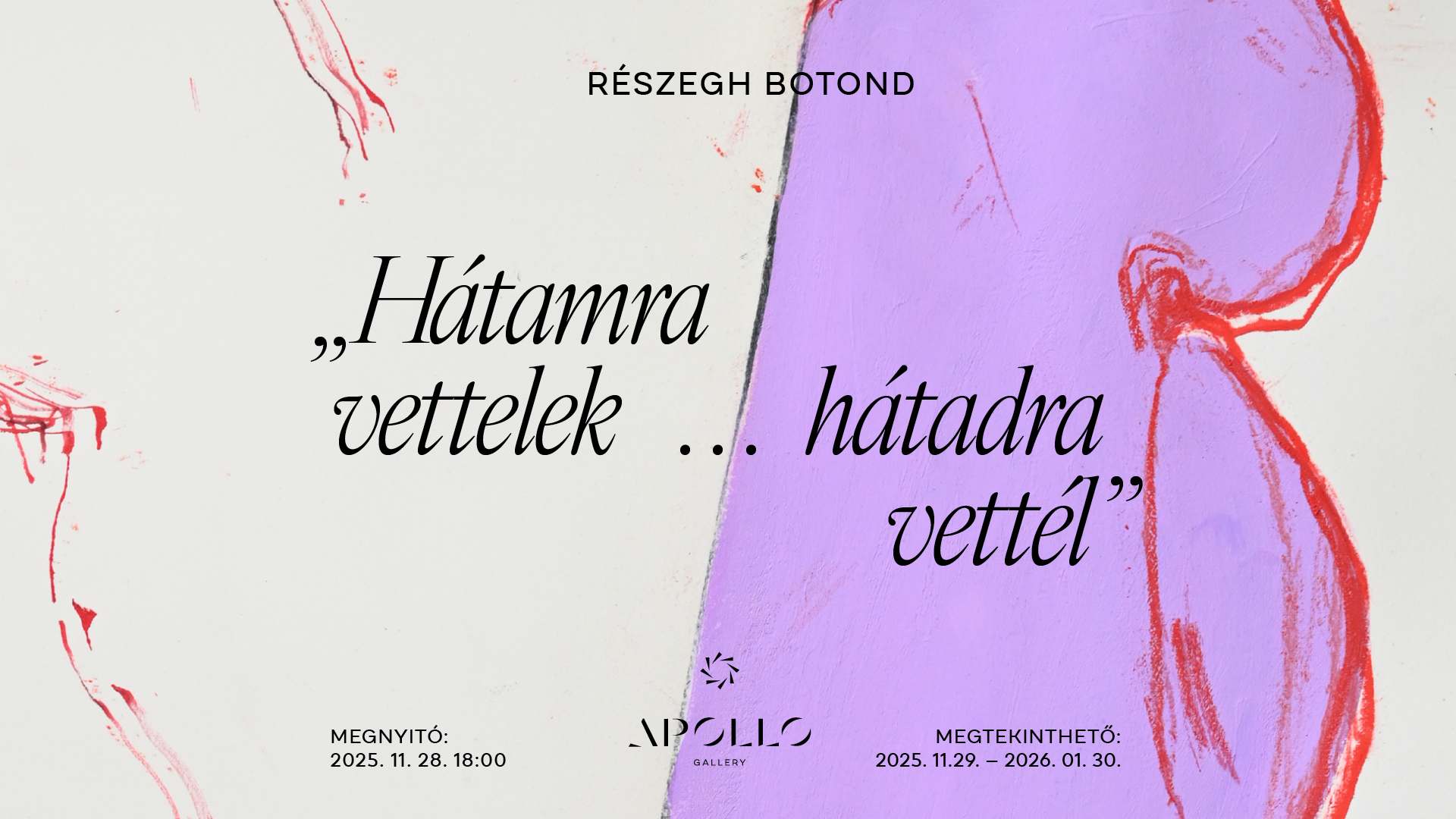Opening: 11.18.25, 6 PM
Venue: Apollo Gallery, Blaha Lujza Square 1 (Stáhly Street)
Two lines from Sándor Kányádi’s 1977 poem Szóváltás (“Exchange of Words”) could well serve as an interpretive key to Botond Részegh’s painting and graphic oeuvre. His works depict figures entangled in complex physical, emotional, and spiritual relationships. This bond is fundamental to his practice: togetherness becomes a means of overcoming solitude. Yet the duality that permeates his works visible at times in the interplay of two silhouettes, at others in the division of the pictorial field is profoundly intricate. Psychology, philosophy, and literature alike have attempted to articulate this complexity.
Részegh was born in 1977 in Miercurea Ciuc, the same year the poem was written. He later developed a personal friendship with Kányádi, whose poetics deeply shaped his artistic evolution. In poetry, the language of symbols and the linguistic rendering of reality often entail reduction and condensation, allowing content to harbor multiple layers of meaning. Részegh’s painting and drawing convey a similar sensitivity to what lies between genres: the potential for a concentrated, distilled mode of expression rooted in simple forms, strong contours, and resonant fields of color.
His artistic development has progressed with consistency from mastering graphic media and experimenting with diverse techniques to formulating a painterly language in which his graphic sensibilities continue to play a defining role. Since the outset of his career, he has been preoccupied with human existence, reducing its experience to elemental foundations. Just as an individual gradually builds an understanding of the world, constructing their worldview, Részegh’s figures emerge slowly from the typically homogeneous surface of the canvas. For him, the observing, questioning, struggling, and ultimately faltering human being is a timeless one who, despite historical change, repeatedly wanders into the same dead ends. Only relational ties offer a transcendence of this condition: they provide solace, absolution amidst doubt, and the shared experience that binds us seemingly inevitably, as the paintings suggest.
Botond Részegh’s exhibition opens a window into the intricate terrain of the psyche. His paintings hold up a mirror, prompting us to recognize both our fragility and our strength. The works presented here created over the past decade explore the human interdependence that Kányádi so precisely articulated, while also revealing the experimental character of Részegh’s canvases and paper-based works. They show how his wandering figures who, ultimately, are ourselves oscillate between hopelessness and hope, affection and rejection, unable to resist the fundamental desire to seek connection with another person and to confront the uncertainties of existence together.

